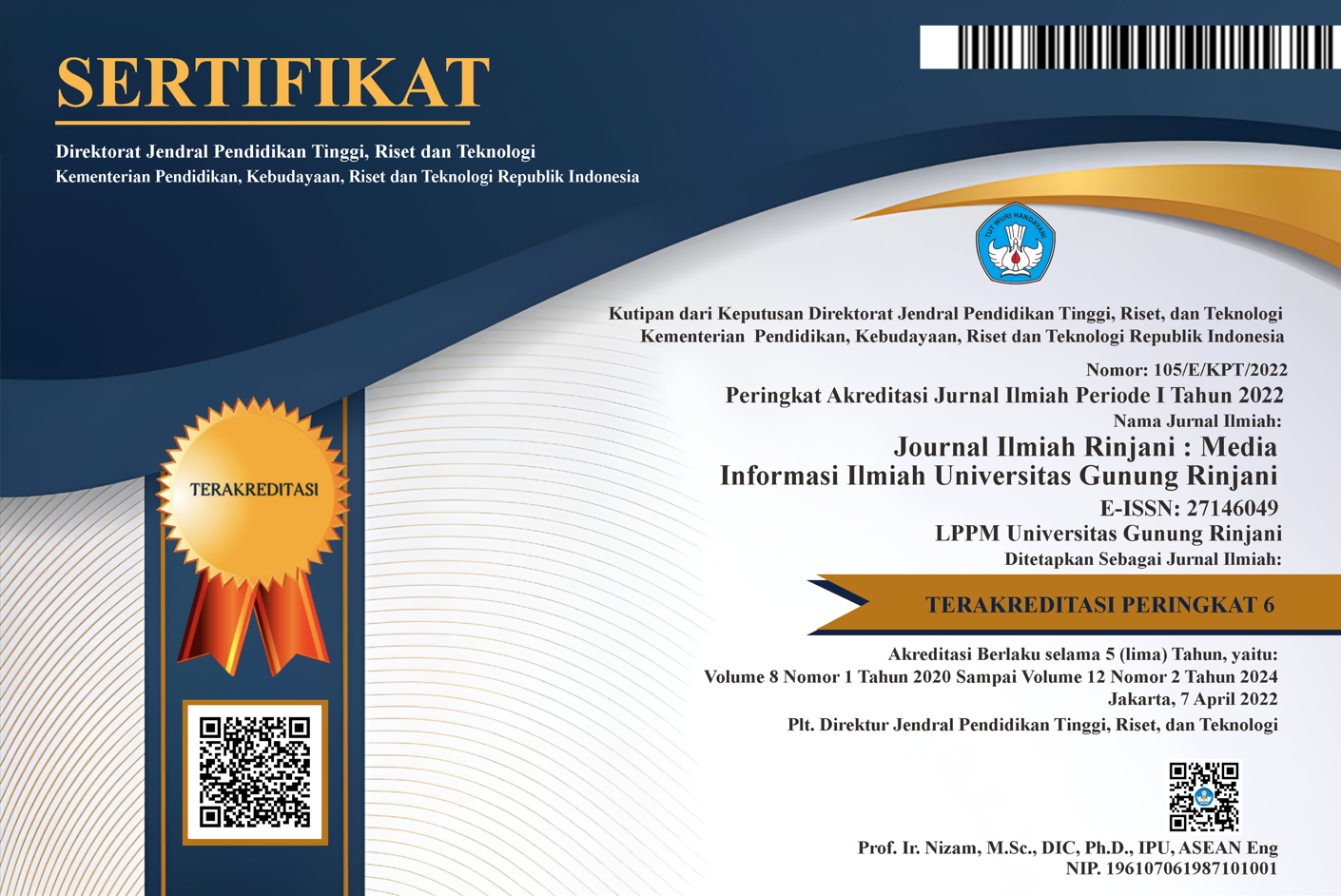Social Support Terhadap Burnout : A Meta-Analysis
Keywords:
meta-analisis, social support, burnoutAbstract
This meta-analysis aims to measure the correlation between social support and burnout by considering effectsize.
This method of research is used to perform several stages such as; research protocol by conducting the stage of selection of reference studies. Strategies for searching for primary sources that support research activities. Inclusion criteria, used to determine criteria in searching research data according to context. The data collection and analysis carried out with the total sample of this study was 3697 people out of 15 studies considered eligible.
The findings from the meta analysis suggest that social support has a high correlation with burnout (r = 0.671; 95% CI [0.451-0.891]). The heterogeneity test showed good results and no publication bias for social support against burnout.
Downloads
References
Bataineh, O., & Alsagheer, A. (2012). An Investigation of Social Support and Burnout among Special Education Teachers in the United Arab Emirates. International Journal of Special Education, 27(2), 5-13.
Beltran, C. A., Moreno, M., P., Estrada, J., G., S., Lopez, T., M., T., & Rodriguez, M., G., A. (2009). Social support, burnout syndrome, and occupational exhaustion among mexican traffic police agents. The spansih journal of psychology, 12(2), 585-589.
Brown, N. C., Prashantham, B., J., & Abbott, M. (2003). Personality, social support, and burnout, among social service profesionals in india. Journal of comunity &applied social psychology, 320-324.
Cohen, S., Underwood, L. G., & Gottlieb, B., H. (2000). Measurement and intervention: a guide for health and social scientist. New york: Oxford university press.
Doğan, B. G., Laçin, E., & Tutal, N. (2015). Predicatives of the workers’ burnout level: Life satisfaction and social support. Procedia-Social and Behavioral Sciences, 191, 1801-1806.
Devereux, J. M., Hastings, R. P., Noone, S. J. Firth, A., & Totsika, V. (2009). Social support and coping as mediators or moderators or moderators of the impact of work stressors on burnout in intellectual disability support staff. Research indevelopmental disabilities, 367-377.
Fujiwara, K., Tsukishima, E., Tsutsumi, A., Kawakami, N., & Kishi, R. (2003). Interpersonal conflict, social support, and burnout among home care workers in Japan. Journal of occupational Health, 45(5), 313-320.
Galek, K., Flannelly, K. J., Greene, P. B., & Kudler, T. (2011). Burnout, Secondary Traumatic Stress, and Social Support. Pastoral Psychology, 60(5), 633–649. doi:10.1007/s11089-011-0346-7.
Galek, K., Flannely, K. J., Greene, P. B., & Kudler, T. (2011). Burnout, secondary traumatic stress, and social support. Pastoral psychology, 633-649.
Golembiewski, R. T. (2001). Handbook of organizational behavior. Second edition, revised and expanded. New york: Marcel Dekker inc.
Gungor, A. (2019). Investigating the relationship between social support and school burnout in Turkish middle school students: The mediating role of hope. School Psychology International, 40(6), 581-597.
Hunter, J. E., & Schmidt. (1990). Methods of Meta-Analysis: Correcting Error and Bias in Reseearch Findings. Newbury Park: Sage Publications. Inc.
Jenkins, R., & Elliott, P. (2004). Stressors, burnout and social support: nurses in acute mental health settings. Journal of advanced nursing, 48(6), 622-631.
Kokkinos, C. M. (2007). Job stressors, personality and burnout in primary school teachers. British journal of educational psychology, 229-243.
Lambert, E. G., Altheimer, I., & Hogan, N. L. (2010). Exploring the relationship between social support and job burnout among correctional staff. Criminal justice and behavior, 37(11), 1217-1236.
Li, L., Ruan, H., & Yuan, W. J. (2015). The relationship between social support and burnout among ICU nurses in Shanghai: A cross-sectional study. Chinese Nursing Research, 2(2-3), 45-50.
Lindgren, C. L., Pass, C. M., & Sime, A. M. (1990). Burnout and social support in family caregivers. Western Journal of Nursing Research, 12(4), 469-487.
Liu, Y., & Aungsuroch, Y. (2019). Work stress, perceived social support, self‐efficacy, and burnout among Chinese registered nurses. Journal of Nursing Management, 27, 1445–1453. doi:10.1111/jonm.12828.
Maslach, C. (2003). Burnout: the cost of caring. Los Altos:ISHK
Maslach, C., & Leiter, M. P. (1997). The truth about burnout: how organizations care personal stress and what to do about it. Hoboken: Jossey-bass.
McDowell, I. (2006). A guide to rating scale and questionnaires. Third edition. New York: Oxford university press.
Nelson, D. L., & Burke, R. J. (2002). Gender, workstress and health. Washington: APA.
Polman, R., Borkoles, E., & Nicholls, A. R. (2010). Type D personality, stress, and symptoms of burnout: the influence of avoidance coping and social support. British journal of healthe psychology, 681-696.
Sand, G., & Miyazaki, A. D. (2000). The impact of social support on salesperson burnout and burnout components. Psychology & marketing, 17(1), 13-26.
Sánchez-Moreno, E., de La Fuente Roldán, I. N., Gallardo-Peralta, L. P., & Barrón López de Roda, A. (2014). Burnout, informal social support and psychological distress among social workers. The British Journal of Social Work, 45(8), 2368-2386.
Sellar, T., Arulrajah, A. A., & Lanka, V. (2019). The Role of Social Support on Job Burnout in the Apparel Firm. International Business Research, 12(1), 110-118.
Sun, J., Wang, X., Wang, Y., Du, X., & Zhang, C. (2019). The mediating effect of perceived social support on the relationship between mindfulness and burnout in special education teachers. Journal of community psychology, 47(7), 1799-1809.
Sugiyanto. (2006). Metaanalisis: Bahan Perkuliahan Metode Kuantitatif. Yogyakarta : Universitas Gadjah Mada.
Ye, Y., Huang, X., & Liu, Y. (2021). Social Support and Academic Burnout Among University Students: A Moderated Mediation Model. Psychology Research and Behavior Management, 14, 335.
Yürür, S., & Sarikaya, M. (2012). The effects of workload, role ambiguity, and social support on burnout among social workers in Turkey. Administration in Social Work, 36(5), 457-478.
Zellars, K. L., Perrewe, P. L., & Hochwarter, W. A. (2000). Burnout in health care: the role of five factors of personality. Journal of Applied Social Psychology, 30(8), 1570-1598.















